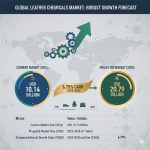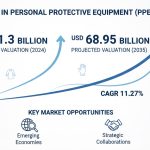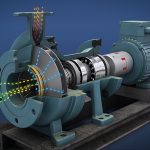Global PCR (Polymerase Chain Reaction) in Agro-Food Market
As stated in our extensive report, the Global PCR (Polymerase Chain Reaction) in Agro-Food Market accounted for USD 0.8 Billion in 2022 and is projected to reach a value of USD 1.7 Billion by 2030.
Polymerase Chain Reaction (PCR) is a potent instrument used in the agro-food industry to detect and identify specific DNA or RNA sequences in various agricultural commodities and food products. It allows for identifying pathogens, genetically modified organisms (GMOs), and allergens. PCR can rapidly amplify and produce millions of copies of a target DNA or RNA sequence, enabling even low concentrations of contaminants or pathogens to be detected. This technology provides accurate and sensitive results, aiding in agro-food product quality control and safety assessment. PCR is widely utilized in the agro-food industry to ensure the safety and trackability of food, thereby enhancing consumer confidence.
The Polymerase Chain Reaction (PCR) technology plays a crucial role in the agro-food industry, primarily due to its ability to detect and amplify specific DNA sequences. PCR is used to identify genetically modified organisms (GMOs), foodborne pathogens, and allergens, ensuring the safety and quality of agro-food products. The market drivers for PCR in the agro-food industry include the increasing demand for food safety testing, strict regulations on GMO labeling, growing emphasis on traceability and transparency in the logistics network, and the need for rapid and accurate testing methods to prevent foodborne illnesses. Additionally, advancements in PCR technology, such as real-time PCR and digital PCR, are further driving market growth.
These are the primary factors that must be considered to propel the growth of the global PCR (Polymerase Chain Reaction) in Agro-Food market. However, some of the restraints faced by the PCR (Polymerase Chain Reaction) in Agro-Food market include high costs associated with PCR equipment, reagents, and consumables, which can limit its adoption by small and medium-sized enterprises. Additionally, the complexity of PCR technology may require specialized training and expertise, making it challenging for some users.
Click To Get a Free Sample On the Research Study

Key factors influencing PCR (Polymerase Chain Reaction) in Agro-Food Market Growth
The growth of the global PCR (Polymerase Chain Reaction) in Agro-Food market can be attributable to the following:
- Increasing demand for food safety and security: With the rise in global population, there is a growing concern about food safety and security. PCR technology allows the rapid and accurate detection of pathogens and genetically modified organisms (GMOs) in food and agricultural products, ensuring food safety and quality.
- Governments and regulatory authorities are implementing stricter regulations to ensure the safety and quality of agro-food products. Regulatory bodies widely accept and recommend PCR-based testing methods, thereby driving the use of PCR in the agro-food market.
- Foodborne illnesses caused by pathogens, namely Salmonella, E. coli, and Listeria, are a significant concern for the agro-food industry. PCR-based methods provide rapid and sensitive detection of these pathogens, enabling early intervention and preventing foodborne outbreaks.
- Genetically modified crops are extensively used in the agro-food industry to enhance productivity and nutritional value. However, consumer awareness and concerns about GMOs have led to regulatory requirements for proper labeling and testing. PCR-based GMO testing is highly reliable and accurate, driving its adoption in the agro-food market.
- Continuous advancements in PCR technology, such as real-time PCR and digital PCR, have improved the sensitivity, specificity, and efficiency of PCR-based testing methods. These advancements have increased the adoption of PCR in the agro-food market and expanded its application in traceability, authenticity, and quality control.
- There is a rising demand for organic and non-GMO food products due to increasing health consciousness and consumer preference for natural and sustainable products. PCR-based testing methods play a crucial role in verifying the authenticity and purity of organic and non-GMO food, thereby supporting the growth of the agro-food market.
- Various research institutions and companies are investing significantly in R&D activities to develop innovative PCR-based solutions for agro-food testing. These investments drive technological advancements and expand PCR applications in the agro-food market.
Asia Pacific Region to Lead the Market
Asia Pacific PCR (Polymerase Chain Reaction) in Agro-Food market is getting more significant with maximum market share during the forecast period. Due to several factors, the Asia Pacific region has become the largest market for PCR technology in the agro-food industry. The population growth and urbanization in countries like China and India have increased the need for agro-food products. This increased demand has driven the adoption of PCR technology in the region. Secondly, there is a growing awareness and concern regarding food safety and quality. PCR is a highly efficient and convenient method for detecting pathogens and contaminants in agro-food products, ensuring consumer safety. This increased awareness has further propelled the use of PCR technology in the agro-food industry. Governments in the Asia Pacific area have initiated various measures to improve agriculture and food production. They invest in research and development activities to enhance crop productivity and reduce post-harvest losses. These initiatives have significantly boosted the demand for PCR technology in the region.
Conclusion
Increasing demand for food safety testing, strict regulations on GMO labeling, and growing emphasis on traceability and transparency in the logistics network positively influence the overall PCR (Polymerase Chain Reaction) in Agro-Food market.
Some of the key players in the Global PCR (Polymerase Chain Reaction) in Agro-Food Market include- Agilent Technologies (U.S.), Biomerieux (France), Bio-Rad Laboratories Inc. (U.S.), Biotecon Diagnostics (Germany), Hygiena (U.S.) and others.
![[Market Research Reports] – Research Google News Blog | VMR.Biz](https://www.vmr.biz/wp-content/uploads/2022/12/logo-removebg-preview.png)











